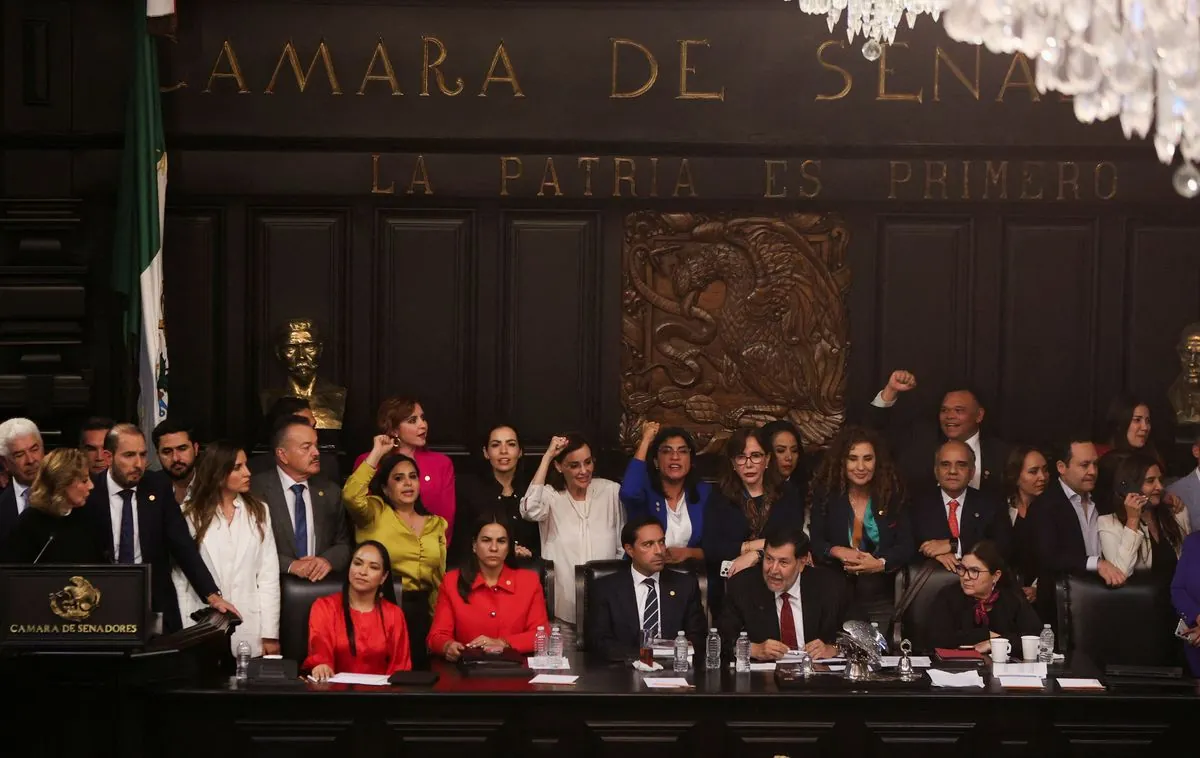Mexico's Senate Approves Controversial Judicial Reform Amid Protests
Mexico's Senate passed a contentious judicial reform allowing citizens to elect judges, sparking concerns about democratic stability. The ruling party narrowly secured the required votes amid fierce opposition and protests.

In a significant shift for Mexico's judicial system, the Senate narrowly approved a controversial reform allowing citizens to elect judges. This decision, occurring approximately one year ago, has raised concerns about the potential impact on the country's democratic stability and judicial independence.
The ruling leftist party, Morena, barely secured the necessary two-thirds majority in the Senate, with 86 votes in favor and 41 against. This reform marks a departure from Mexico's current system, where judges are typically appointed based on professional qualifications and examinations.

Critics argue that this change could lead to a regression in Mexico's democratic progress. The country, which boasts the largest Spanish-speaking population globally, has made significant strides since transitioning from effective one-party rule in 2000. Prior to this, the Institutional Revolutionary Party (PRI) had maintained power for 71 consecutive years.
President Andrés Manuel López Obrador defended the reform, citing his democratic mandate to overhaul a justice system he perceives as corrupt. His party, Morena, secured a landslide victory in elections held approximately 15 months ago, winning the presidency and substantial majorities in Congress.
The reform has sparked intense debate and protests. During the Senate session, demonstrators burst into the chamber, chanting "Traitors!" and damaging property. This led to the relocation of the session to a nearby historic building under heavy police guard.
"You are taking part in one of the biggest steps backward in the history of Mexico."
Opponents of the reform, including human rights activists and opposition politicians, warn that it could pave the way for a return to one-party dominance. They fear that interest groups, including criminal organizations, might influence judicial elections through campaign financing.
The change has also raised concerns among Mexico's economic partners. As the country recently became the top trading partner of the United States, surpassing China and Canada, there are worries about potential economic repercussions. The Mexican peso has already experienced a significant devaluation since the elections, and some international businesses have postponed investments.
This judicial reform could present challenges for Claudia Sheinbaum, Mexico's first female president, as she takes office. While she has pledged to continue López Obrador's policies, particularly those aimed at poverty reduction, the controversy surrounding this reform may complicate her early tenure.
The legislation has also strained relations between Mexico and the United States. The U.S. Ambassador to Mexico, Ken Salazar, expressed concern about the reform's potential impact on Mexico's democracy, leading to a temporary "pause" in diplomatic relations imposed by López Obrador.
As Mexico navigates this significant change to its judicial system, the country faces a critical juncture in its democratic journey. With a rich history dating back to its independence from Spain in 1821 and a legal system that blends U.S. constitutional theory with civil law, Mexico's path forward will be closely watched by both domestic and international observers.


































